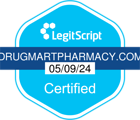El campo de la salud está en constante evolución, y con él, las demografías de la población paciente. Uno de los segmentos más rápidamente crecientes de la población es la comunidad hispana. Solo en los Estados Unidos, se prevé que la población hispana crezca un 165% para 2050. Con este crecimiento viene una necesidad de profesionales de la salud que sean capaces de comunicarse eficazmente con y cuidar a esta población.
Uno de los aspectos más importantes para brindar una atención médica eficaz a los pacientes hispanos es poder hablar y entender su idioma. La capacidad de comunicarse con los pacientes en su idioma nativo es vital para construir confianza y comprensión, y conduce a una mejor cumplimiento de los protocolos de tratamiento y mejores resultados de salud. Esto es especialmente cierto en el campo de la farmacia, donde los farmacéuticos y los técnicos de farmacia desempeñan un papel crítico en el cuidado de los pacientes.
Los farmacéuticos y técnicos de farmacia que hablan español están en gran demanda en el sistema de salud actual. Pueden comunicarse con los pacientes en su idioma nativo, lo que mejora significativamente la comprensión del paciente sobre su régimen de medicamentos y cualquier efecto secundario potencial. Esto conduce a un mejor cumplimiento de los protocolos de tratamiento y, en última instancia, a mejores resultados de salud.
Es importante señalar que la competencia lingüística no es el único aspecto de la competencia cultural. Entender la cultura del paciente también es crucial para brindar una atención eficaz. Esto incluye entender las creencias y valores del paciente relacionados con la salud, así como sus prácticas curativas tradicionales. Al entender estos factores culturales, los farmacéuticos y los técnicos de farmacia pueden adaptar sus recomendaciones y consejos para alinearse mejor con las creencias y valores del paciente, lo que conduce a un mejor cumplimiento y mejores resultados de salud.
Un ejemplo de cómo la competencia cultural puede mejorar los resultados de salud es en el área de la gestión de la diabetes. Muchos pacientes hispanos tienen una fuerte creencia en las prácticas curativas tradicionales, como el uso de remedios herbales. Un farmacéutico o técnico de farmacia que entiende estas creencias y es capaz de integrarlas en el tratamiento puede ayudar al paciente a mejorar su control de la diabetes, lo que a su vez mejorará su salud a largo plazo.
En resumen, la importancia y el valor de los farmacéuticos y técnicos de farmacia que hablan español en el cuidado de los pacientes hispanos no pueden ser subestimados. La capacidad de hablar y entender el idioma y la cultura del paciente es esencial para brindar una atención eficaz y mejorar los resultados de salud. A medida que la población hispana continúa creciendo, es esencial que el sistema de salud contrate y desarrolle a más profesionales de la salud que hablen español y entiendan las necesidades culturales de esta población.
En Drug Mart Pharmacy, siempre contamos con personal de habla hispana, incluidos técnicos de farmacia y un farmacéutico. Visite la farmacia o llámenos en cualquier momento si tiene preguntas.
English Translation:
The field of healthcare is constantly evolving, and with it, the demographics of the patient population. One of the most rapidly growing segments of the population is the Hispanic community. In the United States alone, the Hispanic population is projected to grow by 165% by 2050. With this growth comes a need for healthcare professionals who are able to effectively communicate with and care for this population.
One of the most important aspects of providing effective healthcare to Hispanic patients is being able to speak and understand their language. The ability to communicate with patients in their native language is vital for building trust and understanding, and it leads to improved compliance with treatment protocols and better health outcomes. This is particularly true in the field of pharmacy, where pharmacists and pharmacy technicians play a critical role in the care of patients.
Spanish-speaking pharmacists and pharmacy technicians are in high demand in today's healthcare system. They are able to communicate with patients in their native language, which greatly improves the patient's understanding of their medication regimen and any potential side effects. This leads to better compliance with treatment protocols and ultimately, better health outcomes.
It is important to note that language proficiency is not the only aspect of cultural competency. Understanding the culture of the patient is also crucial to providing effective care. This includes understanding the patient's beliefs and values related to health, as well as their traditional healing practices. By understanding these cultural factors, pharmacists and pharmacy technicians are able to tailor their recommendations and advice to better align with the patient's beliefs and values, leading to improved compliance and better health outcomes.
One example of how cultural competency can improve healthcare outcomes is in the area of diabetes management. Many Hispanic patients have a strong belief in traditional healing practices, such as using herbal remedies. A pharmacist or pharmacy technician who understands this cultural belief can work with the patient to integrate traditional remedies into their diabetes management plan, leading to improved compliance and better health outcomes.
Another example is that of women’s health. Some Hispanic women may have a strong cultural preference for natural remedies, such as herbs and teas, rather than taking prescription medications. Pharmacists and pharmacy technicians who understand these cultural beliefs can work with these patients to develop a treatment plan that incorporates these natural remedies, leading to improved compliance and better health outcomes.
In conclusion, Spanish-speaking pharmacists and pharmacy technicians are an essential component of the healthcare system, particularly when it comes to caring for Hispanic patients. Their ability to speak and understand the patient's native language, as well as their understanding of the patient's culture, greatly improves compliance with treatment protocols and leads to better health outcomes. As the Hispanic population continues to grow, it is important that the healthcare system continues to invest in the training and development of Spanish-speaking pharmacists and pharmacy technicians to ensure that all patients receive the best possible care.
At Drug Mart Pharmacy, we always have Spanish speaking staff, including pharmacy technicians and a pharmacist. Please visit the pharmacy or call us anytime if you have questions.




.svg)
.svg)








